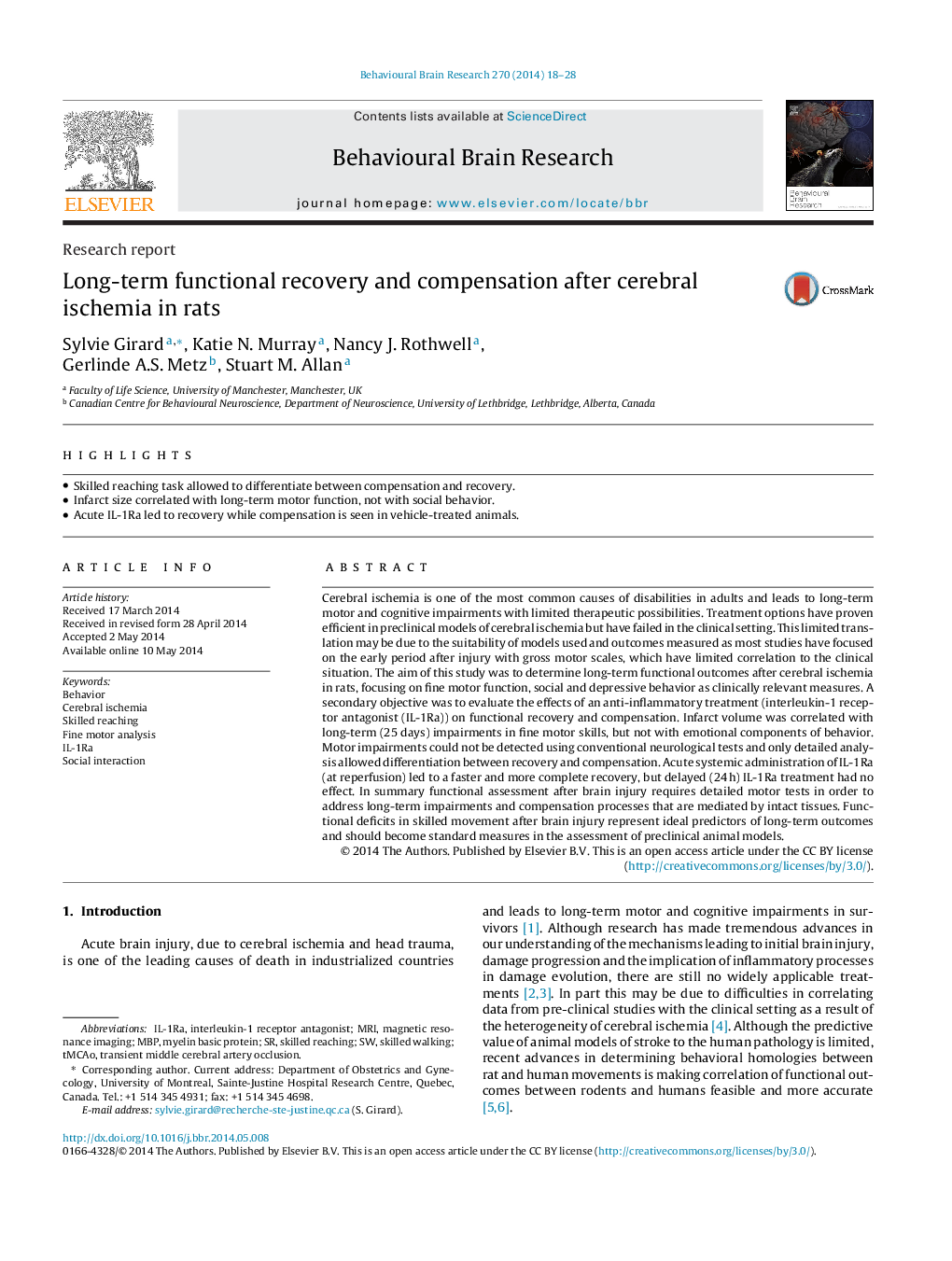| کد مقاله | کد نشریه | سال انتشار | مقاله انگلیسی | نسخه تمام متن |
|---|---|---|---|---|
| 6257892 | 1612962 | 2014 | 11 صفحه PDF | دانلود رایگان |
- Skilled reaching task allowed to differentiate between compensation and recovery.
- Infarct size correlated with long-term motor function, not with social behavior.
- Acute IL-1Ra led to recovery while compensation is seen in vehicle-treated animals.
Cerebral ischemia is one of the most common causes of disabilities in adults and leads to long-term motor and cognitive impairments with limited therapeutic possibilities. Treatment options have proven efficient in preclinical models of cerebral ischemia but have failed in the clinical setting. This limited translation may be due to the suitability of models used and outcomes measured as most studies have focused on the early period after injury with gross motor scales, which have limited correlation to the clinical situation. The aim of this study was to determine long-term functional outcomes after cerebral ischemia in rats, focusing on fine motor function, social and depressive behavior as clinically relevant measures. A secondary objective was to evaluate the effects of an anti-inflammatory treatment (interleukin-1 receptor antagonist (IL-1Ra)) on functional recovery and compensation. Infarct volume was correlated with long-term (25 days) impairments in fine motor skills, but not with emotional components of behavior. Motor impairments could not be detected using conventional neurological tests and only detailed analysis allowed differentiation between recovery and compensation. Acute systemic administration of IL-1Ra (at reperfusion) led to a faster and more complete recovery, but delayed (24Â h) IL-1Ra treatment had no effect. In summary functional assessment after brain injury requires detailed motor tests in order to address long-term impairments and compensation processes that are mediated by intact tissues. Functional deficits in skilled movement after brain injury represent ideal predictors of long-term outcomes and should become standard measures in the assessment of preclinical animal models.
Journal: Behavioural Brain Research - Volume 270, 15 August 2014, Pages 18-28
